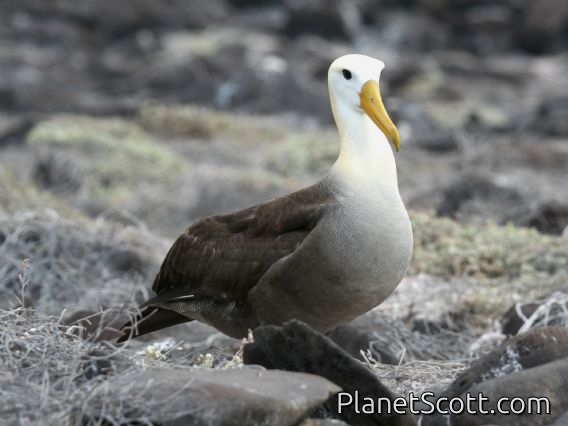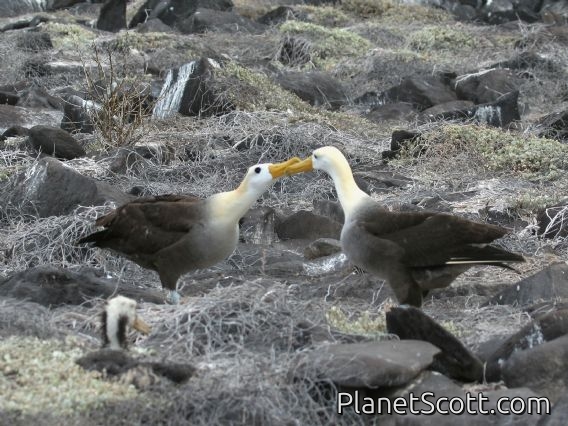Waved Albatross (Phoebastria irrorata)

Waved Albatross (Diomedea irrorata)

Waved Albatross (Diomedea irrorata) Mating Ritual

Waved Albatross (Diomedea irrorata)



×




Waved Albatross (Diomedea irrorata)

Waved Albatross (Diomedea irrorata) Mating Ritual

Waved Albatross (Diomedea irrorata)
About Waved Albatross (Phoebastria irrorata)
- Kingdom: Animals
- Phylum: Chordates
- Class: Birds
- Order: Tubenoses
- Family: Albatrosses
The waved albatross, also known as Galapagos albatross, is one of three species of the family Diomedeidae that occur in the tropics. When they forage, they follow a straight path to a single site off the coast of Peru, about 1,000 km (620 mi) to the east. During the non-breeding season, these birds reside primarily on the Ecuadorian and Peruvian coasts.
Source: Wikipedia
Lifelists
Trips
Visits
-
2006-11-30
Isla Espanola, Ecuador×××






